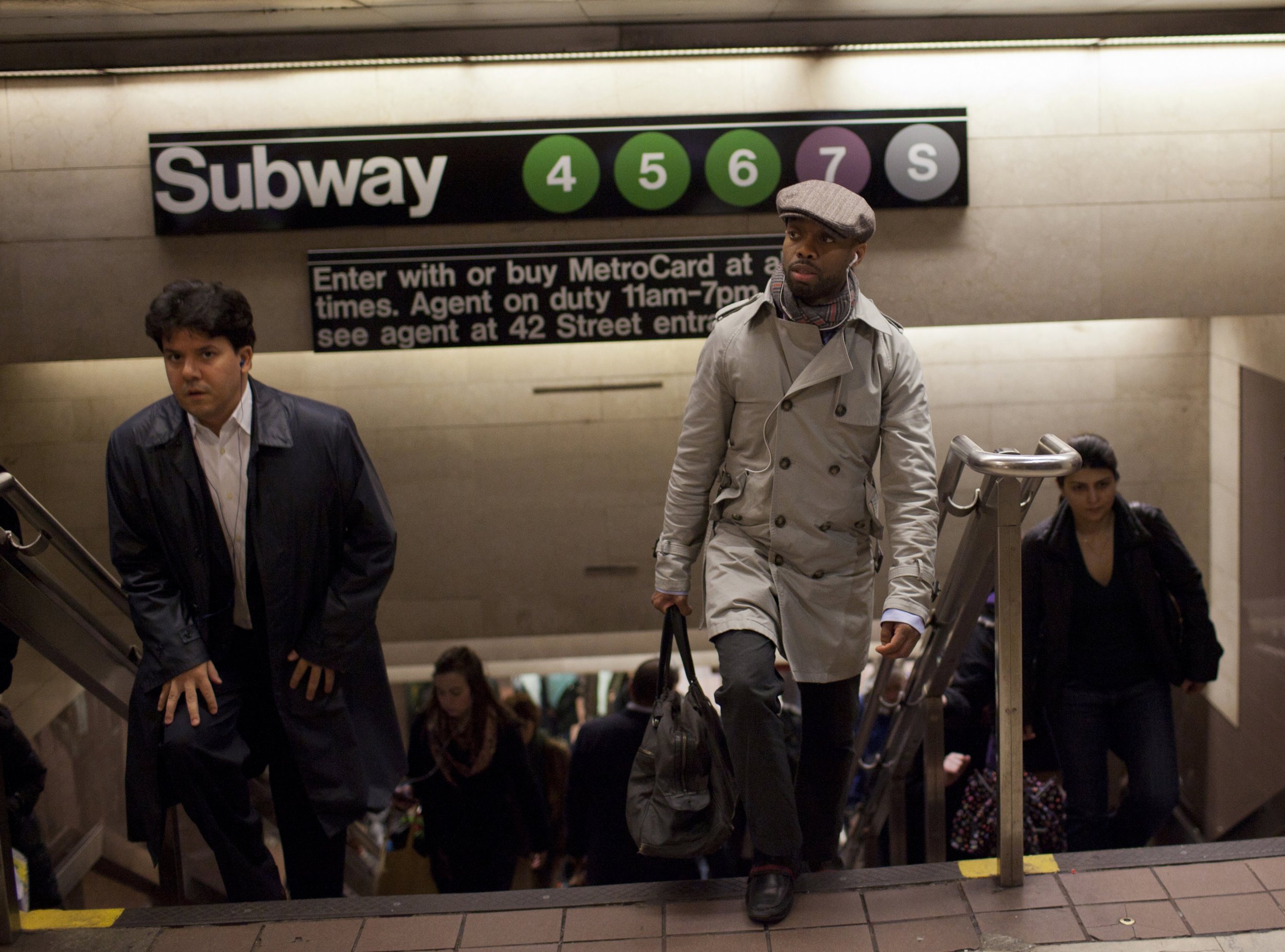
A wide-ranging new survey from the Pew Research Center found that Americans have a complex, and often contradictory, relationship with the country's changing racial and ethnic makeup. The study measured attitudes toward evolving demographics in a host of social settings, such as the workplace, residential neighborhoods and the public square. Among survey respondents, Pew found that "relatively few Americans interact a lot with people from other racial and ethnic groups." According to results from the report, Americans' social circles are largely segregated along racial and ethnic lines.
While most Americans have at least some daily interaction with members of a different race or ethnicity, the bulk of social encounters occur within racial and ethnic groups, not between them.
Among white Americans, 97 percent report interacting "some" or "a lot" with other white Americans, with 84 percent of whites falling into the latter category. By contrast, only one-quarter of whites report interacting "a lot" with black Americans on a daily basis. Less than one-quarter of whites interact a lot with someone who is Hispanic or Asian.
The picture is similar from the perspective of black Americans, who interact by and large with other black Americans on a daily basis. Although, unlike their white counterparts, nearly half of blacks report interacting "a lot" with whites every day. Following from this discrepancy, black Americans report one of the highest rates of interracial interaction of any racial group surveyed. Eighty-two percent of blacks interact at least a little bit with whites on a daily basis. The only more prevalent interracial interaction in America occurs between whites and Asians, 95 percent of whom report interacting at least a little with whites every day.
Professor Maria Krysan, who heads the Department of Sociology at the University of Illinois at Chicago, told Newsweek that "one reason why people aren't interacting on a daily basis across racial groups is racial residential segregation," the social separation of racial categories in homes, neighborhoods and communities.
"The consequences of this are that people of different races and ethnicities go about their daily lives [separately]," she explained. "Segregation has declined, to be sure, in some places. But the cities in this country remain segregated by race and ethnicity. The opportunities to interact in different racial groups are fewer."
Majorities of respondents along every racial, ethnic and political group measured, with one exception, indicated that they believed diversity has a positive impact on the country's culture. Exactly half of respondents who self-identify as Republican hold this view. Considering that racial intermingling in social settings is not widespread among racial categories, this view may be more of a statement of personal values rather than a lesson born of individual experience. An earlier Pew study probed positive feelings about demographic diversity, exposing contradictions within these underlying tolerant attitudes.
In March, Pew released a report showing that a plurality of American adults believes the arrival of a majority-minority country (one with a majority of residents identifying as part of a minority group) will weaken American customs and values. The attitudes of white Americans carry weight for this belief, with a 46 percent plurality reporting concerns about customs and values weakening due to changing demographics. Black and Hispanic respondents largely welcome or are indifferent to America's impending majority-minority status, projected by the Census Bureau to occur in 2050.
Krysan highlighted similar "comfort-level" issues as a possible secondary explanation for social segregation reported in the recent Pew survey. These factors implicate personal decision-making rather than larger, structural forces, such as home ownership. Though she cautioned that structural issues remain a key player in understanding racial segregation today.
"We're very segregated residentially," she said. "And so the opportunities to have that kind of [interracial] interaction are reduced substantially."
Uncommon Knowledge
Newsweek is committed to challenging conventional wisdom and finding connections in the search for common ground.
Newsweek is committed to challenging conventional wisdom and finding connections in the search for common ground.
About the writer
Asher Stockler is a reporter for Newsweek covering the National Rifle Association and gun policy.
To read how Newsweek uses AI as a newsroom tool, Click here.








